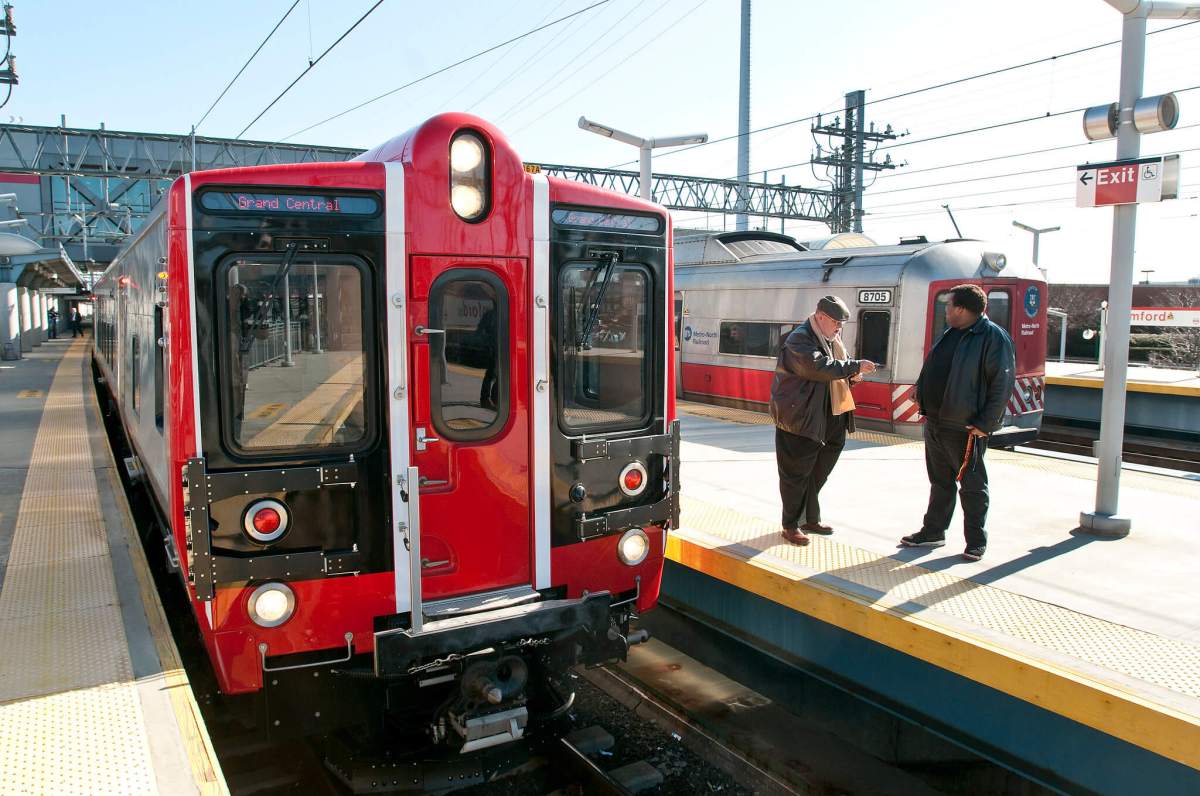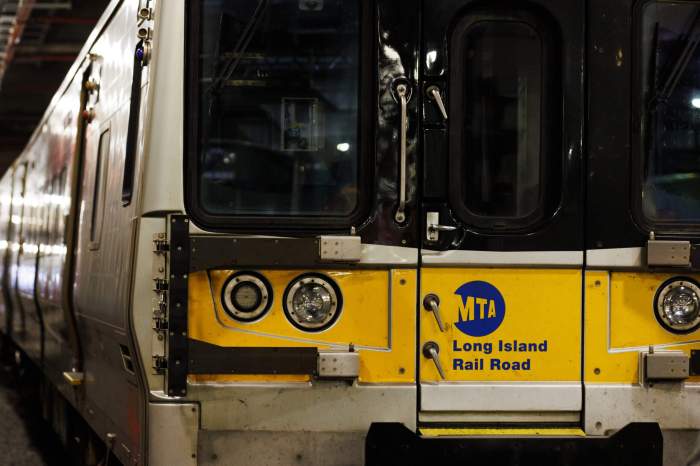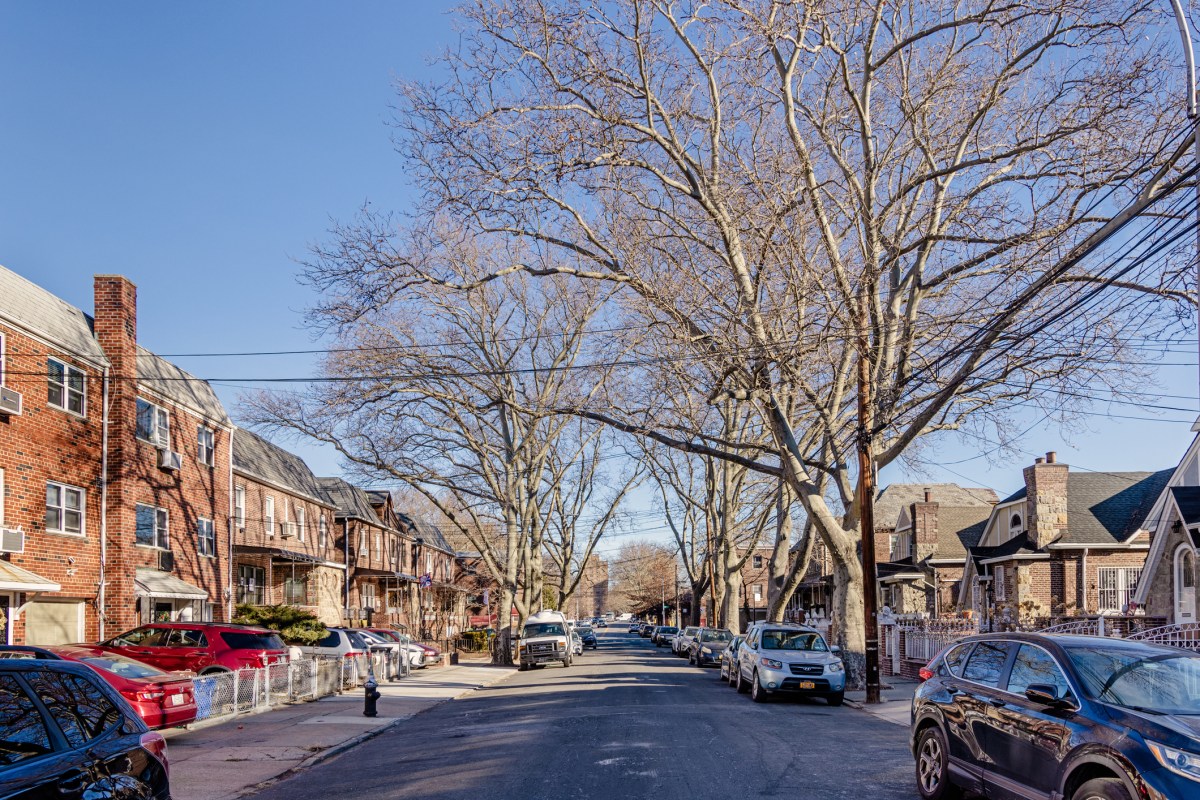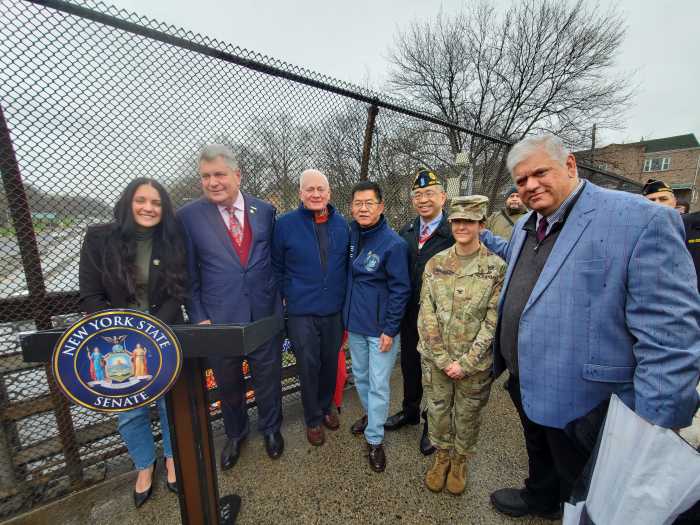The MTA’s budget woes may be over for now in New York State, but a thorny political thicket is forming between the Empire State and its eastern neighbor of Connecticut, where officials are proposing service cuts to Metro-North’s bi-state New Haven Line.
The New Haven Line — which runs from the namesake city in Connecticut to Grand Central Terminal, with several branches, and is by far the busiest of Metro-North’s three main lines — is operated entirely by the MTA but funded through a complex contractual arrangement between New York and Connecticut for services in their respective states.
Connecticut Governor Ned Lamont has proposed to cut state subsidy for the railroad by about 14%, which would reduce the number of trains running in the Nutmeg State daily from 309 to 260 if approved by Hartford lawmakers ahead of the July 1 start of the Connecticut fiscal year.
Connecticut Department of Transportation spokesperson Josh Morgan told amNewYork Metro that the cuts were made based upon sluggish post-pandemic ridership numbers and changing work and travel patterns.
“The Governor’s FY24-FY25 budget proposal is based on the understanding that ridership numbers and travel patterns have changed since the COVID-19 pandemic, and those changes should be reflected in the services provided,” said Morgan. “The legislature’s budget contains similar funding levels in FY24. CTDOT is working in consultation with MTA Metro-North to analyze current ridership patterns and possible schedule adjustments to reflect available funding.”
After the passage of the Connecticut budget, CT DOT will conduct a “Service and Fare Equity Analysis,” including public hearings, to determine how any changes would impact low-income or minority populations, Morgan said. Service changes would go into effect in the fall.
The cuts present a dilemma for the MTA, which just secured financial stability for the next few years in New York’s budget process, including over $1.1 billion through a payroll tax increase on Big Apple businesses, one-time state aid, increased city contributions for paratransit, and the promise of future revenue from downstate casinos. The funding comes with the understanding that the agency will not cut service.
But at the MTA’s monthly board meeting on Wednesday, Metro-North president Cathy Rinaldi said the Connecticut funding proposal would make it “very difficult, if not impossible” to prevent peak-hour service cuts on the New Haven Line.
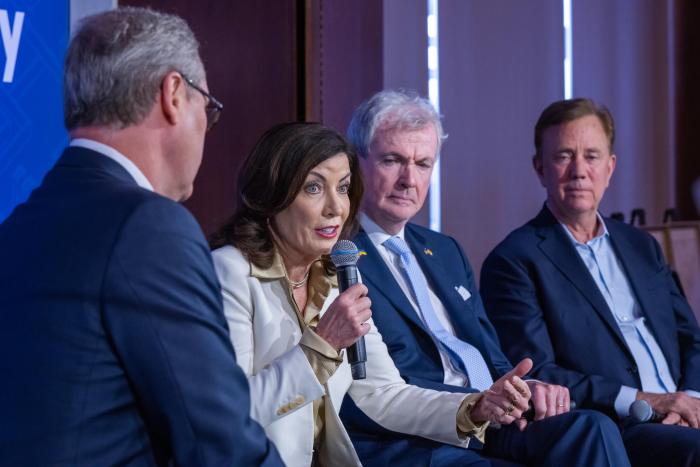
“So there would potentially be cuts in the peak, which is obviously extremely concerning given the ridership we’re seeing in the peak,” said Rinaldi. “It’s a very integrated system and a very integrated service along the New Haven Line, and we will have to do our best to hold New York harmless, but obviously that’s a real challenge given how integrated the service plan is.”
Last Wednesday, Metro-North set a post-pandemic ridership record of 207,484 customers, about 72% of the ridership seen on a “comparable pre-pandemic day,” according to MTA statistics. The Long Island Rail Road set a post-pandemic ridership record on the same day, carrying 227,489 passengers amounting to 71% of pre-COVID ridership.
As a New York agency, the MTA’s primary responsibility is to provide service to customers in New York, and Rinaldi said that Connecticut budget cuts would not impact service on the Harlem or Hudson lines, nor the Port Jervis and Pascack Valley lines west of the Hudson River.
“This is purely a Connecticut budget issue that affects transportation within the state of Connecticut and to and from the state of Connecticut,” said Rinaldi. “So there really should not be any ripple effects to the other lines that are operated by Metro-North.”
What remains unclear is exactly how service can be maintained at static levels in New York while being cut in Connecticut, given the tightly-wound integration of operations on one line in two states. Rinaldi said she and her team have been in talks with CT DOT, though the talks have not reached the highest level of New York Governor Kathy Hochul engaging directly with Lamont, a spokesperson for Hochul said.
Asked for comment, the spokesperson for Hochul — who made a rare gubernatorial appearance at the MTA Board on Wednesday — referred back to comments by Rinaldi, noting that she has directed the MTA not to reduce service in New York State.
“Governor Hochul has directed us not to reduce service in the state of New York,” Rinaldi told reporters. “So we will do our level best to ensure that New York commuters are unaffected, to the best we can do, by these cuts.”
The governor’s office did not specifically comment on whether New York should pick up the tab for Hartford’s cuts.
Lamont’s proposed cuts come even as the Nutmeg State’s chief executive seeks to reduce the volume of automobile driving within the state — including through a stated aim of increasing transit frequency — and promotes transit-oriented development.
This week, Lamont effectively lent his support to New York’s congestion pricing program, telling reporters that “it’s a good thing for all if more people took the train,” according to CT Insider. That’s a marked contrast from his counterpart in New Jersey, Phil Murphy, who has painted congestion pricing as an existential threat and floated legal action against the Empire State to stop it.
Read more: MTA Expands Subway Service on 12 Lines This Summer



